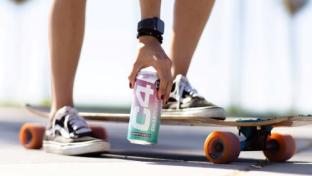Today’s Beverages Tackle Form and Function for Health-Forward Shoppers
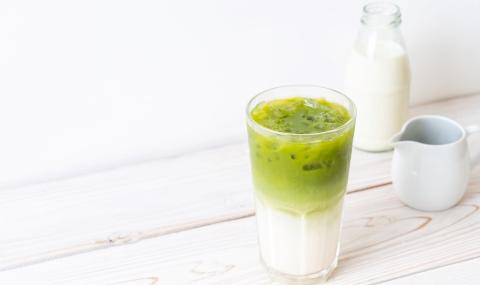
Much can be said about consumers’ continuing shift toward healthier lifestyles, especially when it comes to beverage choices. While calorie-dense juices and sodas still have their place at the table, shoppers are increasingly reaching for waters and other beverages that offer a little something extra.
Functional beverages aren’t new to the market, but their availability and variety have proliferated in recent years. According to a report from The Hartman Group, based in Bellevue, Wash., 56% of adult consumers use functional beverages to treat or prevent specific conditions, and consumers are using beverages to deliver functional benefits of hydration, energy, general prevention and immunity more than ever before.
Dublin-based Research and Markets reports that the functional beverage market in the United States is worth more than $110 billion and will likely reach $200 billion by 2030, with a compound annual growth rate of 5.9% through 2030.
According to Research and Markets, the energy and sports drink segments jointly accounted for 60.2% of the global functional beverage market in 2020, which can be attributed to such factors as Millennials’ interest in the beverages, increasing concerns about health, and more people partaking in sports and recreational activities. Tom Hutchison, chief marketing officer at The Alkaline Water Co., based in Scottsdale, Ariz., believes that while these beverages are popular, there’s an even bigger movement toward making them with fewer chemicals and less sugar.
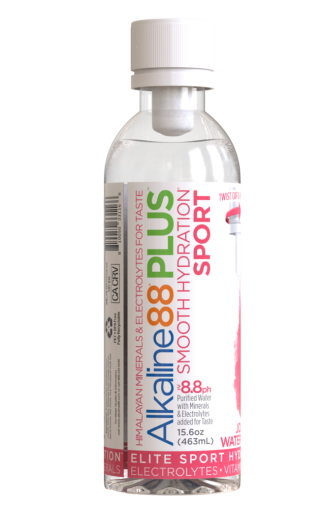
“Pre-COVID, consumers had already been becoming much more health-sensitive and -centered,” says Hutchison. “The pandemic measurably accelerated that awareness and focus. Value-added water, sports drinks and energy drinks are growing strongly, and within sports and energy drinks, much of the product innovation is on healthier beverages free of sugar and chemicals.”
Bill Meissner, president and chief marketing officer of Fort Lauderdale, Fla.-based Splash Beverage Group, agrees that consumers are spending more time working on their overall health choices, especially younger Americans.
“We’ve seen an uptick in alcohol alternatives, from zero-ABV beers and spirit-free liquors, to drinks packed with vitamins, minerals, dietary fibers, probiotics, adaptogens, hemp and other mind/body beneficial offerings,” explains Meissner. “Lower sugar, lower calories and sustainable sourcing practices are growing priorities of the modern customer.”
A Wide-Ranging Category
The functional beverage market runs the gamut from these energy drinks to vitamin-enhanced waters and seltzers to kombucha and many others. The Hartman Group report found that consumers most often seek out these beverages for antioxidants, green tea, electrolytes, superfruits, fiber, probiotics and greens. The types of beverages to which consumers would most like to see functional ingredients added are juice, tea, bottled water, smoothies and milk alternatives.
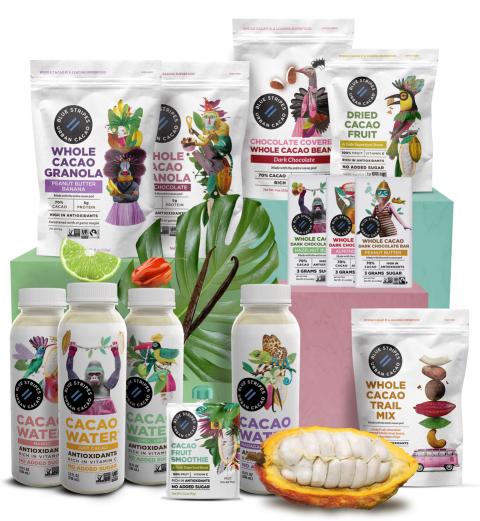
The category has seen its fair share of innovation in recent years, with New York-based healthy beverage company Vitapod offering a variety of drink pods that are fortified with various proteins and vitamins, including collagen and biotin, as well as those offering energy and immune support. Vitapod Chairman Brian Kennedy believes that today’s consumers are trying to achieve the best and healthiest version of themselves without having to sacrifice a busy, on-the-go lifestyle.
“Vitapod offers consumers a convenient, great-tasting solution to hydrate and consume important vitamins and minerals all while continuing to go about their daily routines,” says Kennedy. “We create nutritionally enhanced beverages that help to close the gap for nutrients of public-health concern, such as vitamin D and flavonoids.”
Oded Brenner’s Blue Stripes, meanwhile, is harnessing the power of cacao for the New York-based company’s new line of functional water beverages. The plant-based water, made from cacao fruit pulp, is an upcycled waste product of the chocolate industry and will come in five varieties.
According to Brenner, cacao offers vitamin C, antioxidants and minerals, and has a very approachable flavor profile. “[T]here are always strong wellness and fitness trends, such as protein and probiotic benefits, that can also be found in cacao water,” he explains.
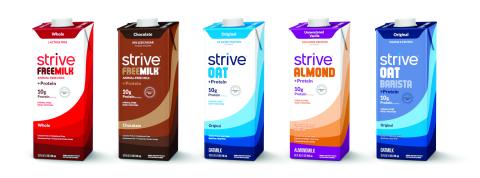
The Alkaline Water Co.’s new Alkaline88 Plus sports beverage offers enhanced hydration plus functional support, while prickly pear cactus-based Caliwater, based in Los Angeles, contains rare antioxidants that help promote skin health and better digestion. San Francisco-based Sunwink, known for its plant-based powdered drink mixes, is now rolling out a ready-to-drink (RTD) beverage with its Digestion Lemon Tonic, packed with dandelion, lemon balm and chicory.
Large manufacturers are also getting on the functional-beverage bandwagon. Launched in 2021, Driftwell, a brand of Purchase, NY.-based PepsiCo, contains L-theanine to help promote relaxation and sleep. Additionally, Lipton, whose RTD beverages are distributed by PepsiCo, has released Lipton Immune Support, a ready-to-drink iced green tea with pineapple mango flavor, vitamin C and a 25% daily value of zinc.
Finding Their Place at Market
Food retailers are realizing the benefits of stocking functional beverages, especially as their shoppers have grown more health-forward. According to Rebecca Calvin, SVP and chief merchandising officer for The Save Mart Cos., based in Modesto, Calif., immunity is the top functional attribute that the grocer’s shoppers are looking for, followed by probiotics, prebiotics, and products that have positive effects on gut health, overall wellness and mindfulness.
“Our shoppers are aware of what they are putting into their bodies, and those products [that are] beneficial for overall health,” asserts Calvin. “Consumers are looking for ways to simplify their life, and consolidating beverages with healthy benefits is a natural fit.”
As far as merchandising goes, Calvin says that Save Mart is focused on integrating functional beverages within mainstream categories to garner even more shopper attention. “As an example, our shoppers looking to buy an enhanced water or energy drink are looking for those items while in those sections, and they are more likely to pick up an item if it is merchandised with ‘like category’ items,” she explains. “In some cases, we’ve segmented within categories to keep items together — functional energy is a great example of this.”
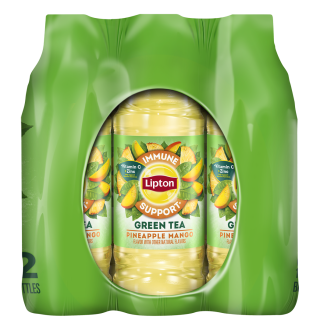
The Future of Function
A majority of retailers and manufacturers believe that we’re only seeing the tip of the iceberg as far as innovation in functional beverages goes, especially as younger generations set their sights on leading a healthier lifestyle.
“Consumers are more aware of what they are drinking and are trying to be more conscious of the beverages they are purchasing,” says Vitapod’s Kennedy. “I think consumer expectations for beverages with added benefits and top-notch taste will only continue to grow as the market does. This in turn drives a need to deliver them with better, higher-quality products.”
A functional milk alternative product collaboration between Perfect Day and Strive Nutrition is also helping to stretch the boundaries of this category. The line includes animal-free, whey protein-enriched whole milk and chocolate milk alternatives, and the manufacturers say that these products offer efficient nutrition along with a promise to help save the planet.
“We have true sustainability, and we deliver enriched animal-free whey protein to plant-based milks that have very little protein,” notes Dennis Cohlmia, co-founder and CEO of Wichita, Kan.-based Strive Nutrition. “We have great taste because of the additional whey protein, and we care about climate change. Through precision fermentation, alternative dairy proteins and components will also support and help food security throughout the globe.”
While demand and innovation will remain high, The Alkaline Water Co.’s Hutchison believes that the potential recession and economic downturn will likely have an impact on the category, since these beverages are at a price premium. As such, he says that it will be even more important to have a clear and differentiated value proposition relative to competitors.

.jpeg?itok=PPwvSWS4)

